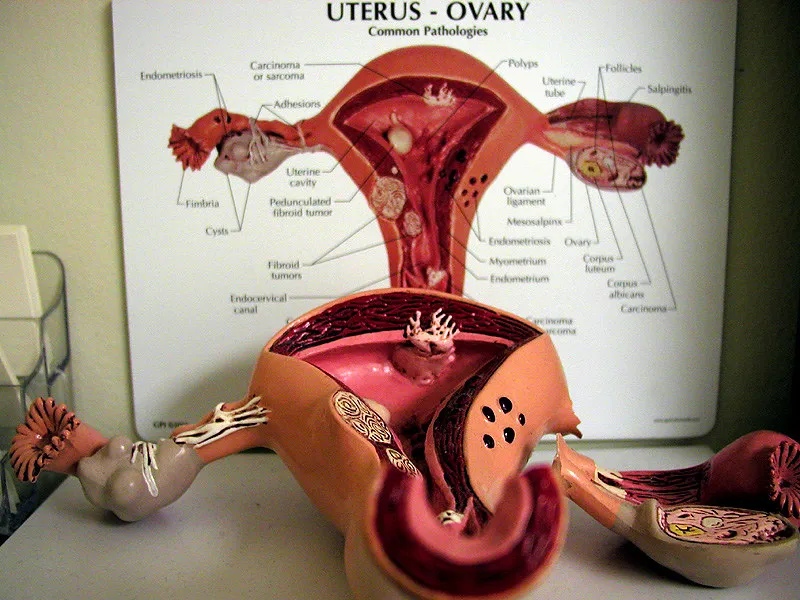I was at a pharmacy in Ibadan and I heard the pharmacist explaining to a woman what Polycystic Ovarian Syndrome (PCOS) is and everything she needed to know about it or let me say everything she knew according to her knowledge as a pharmacist. So I decided to discuss the same topic with you on my blog today. So what's PCOS?
When there is a problem with the body leading to the excessive production of androgens (a male hormone) in a female causing several signs in the body like irregular period (where the period could be missing for multiple cycles), inability to release eggs regularly making it harder to get pregnant, skin breakouts, acne, pimples, hair growth in areas like the chin, chest, and stomach, hair loss can also be experienced, and abdominal weight gain.
A lot of people do not even know they have PCOS, In fact, as children when we see women with hair on their chest and chin, we always assume they are disciplinarians who were harsh with everything but in actuality these women could be suffering from PCOS and when not properly managed, could increase the chance of a person getting diabetes or heart disease.
No doubt PCOS is quite common among women and there has been lots of research on it. Still, researchers have not been able to pinpoint its cause but certain factors such as family history, insulin resistance, being overweight or obese, and inflammation in the body. With PCOS, there are follicles in the ovaries that should not be mistaken for Ovarian cysts.
With Ovarian cysts, there are actual cysts like sacs in the ovaries that occur from eggs in the lining that do not resorb. The majority of ovarian cysts come and go with the cycle of women and are harmless. They are referred to as functional cysts. Some cysts can be calm for concern like the dermoid cyst which can contain hair and skin. Cysts can also occur in other forms known as cystadenomas which can be filled with water or mucus. Ovarian cysts can come with abdominal pain, pain during sex, and other types of pain.
With Polycystic Ovarian Syndrome (PCOS), it is a hormonal problem which can affect mood, fertility, period flow, skin, and weight while Ovarian cysts on the other hand are a physical growth in the ovaries which affects the ovaries directly leading to pain when very large but may not lead to infertility depending on the position where it is.
When looking at tests for PCOS, hormone levels are checked via blood test, an ultrasound scan is done, and the symptoms are carefully looked at. To check if a woman has Ovarian cysts, doctors will usually rely on pelvic scan. PCOS currently doesn't have a permanent cure but it can be managed by losing weight even when it is harder for people living with PCOS to lose weight, using hormonal birth control pills to help regulate hormones, use of ovulation medication pills, and the use of drugs to help the body’s insulin to work better.
YOU CAN READ MORE
https://www.nhs.uk/conditions/ovarian-cyst/
https://www.ncbi.nlm.nih.gov/books/NBK560541/
https://patient.info/womens-health/pelvic-pain-in-women/ovarian-cyst
https://www.nhs.uk/conditions/polycystic-ovary-syndrome-pcos/treatment/
https://www.ncbi.nlm.nih.gov/books/NBK459251/
https://www.nhs.uk/conditions/polycystic-ovary-syndrome-pcos/
https://www.hopkinsmedicine.org/health/conditions-and-diseases/polycystic-ovary-syndrome-pcos

